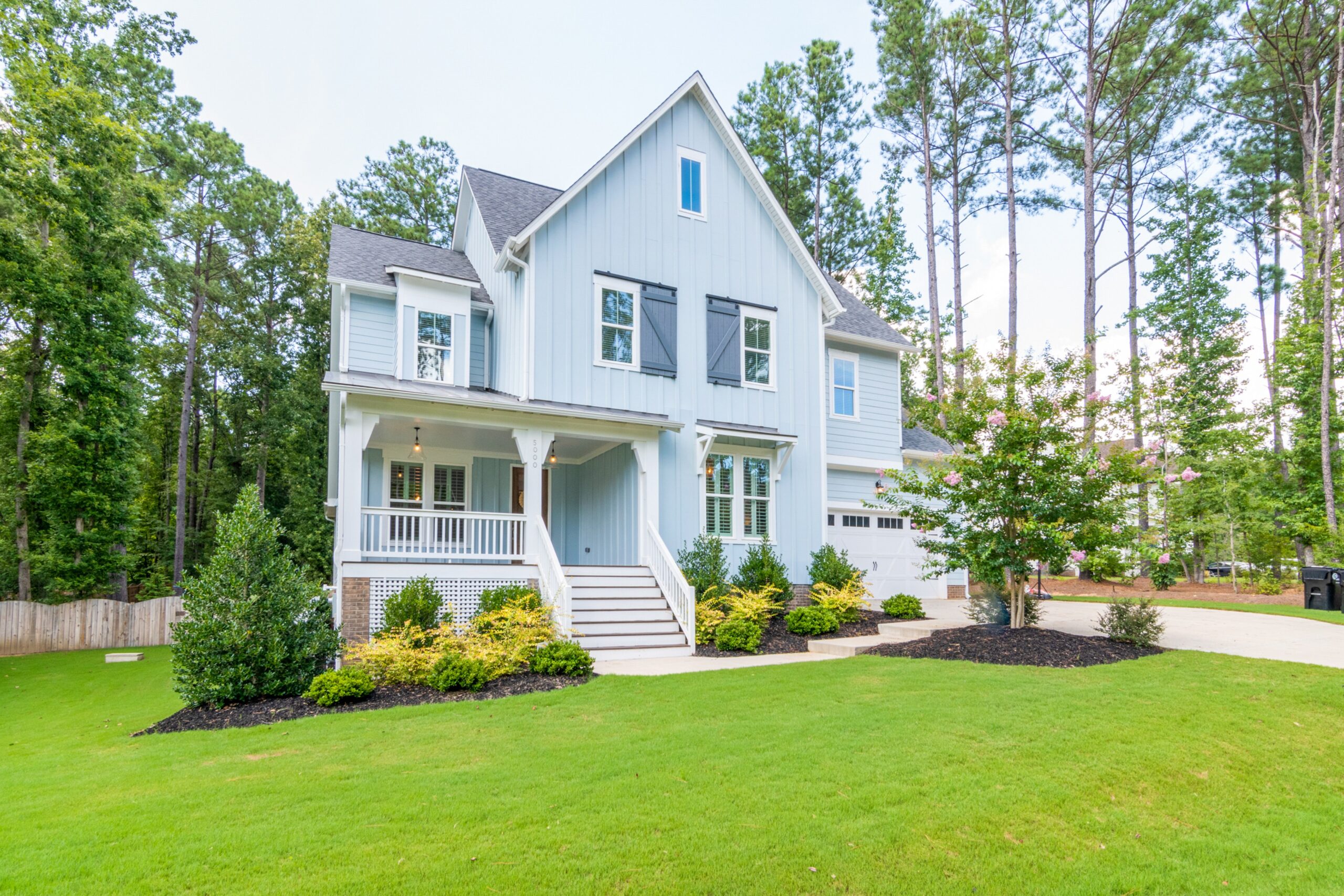Rental Agreement Laws in Oregon 2023 – What’s Required?

Are you searching for rental agreement laws in Oregon for 2023? If so, you’ve come to the right place!
There’s no denying that renting your property may seem intimidating at first, but the reality is that you can rent your property to the most qualified tenants possible and have peace of mind if you know the laws.
In this article we will cover some of the top rental agreement laws for 2023 so that you will know what to add to your lease when you start renting to new tenants.
Rental Agreement Laws in Oregon 2023
Rental agreements may be written or oral; however written agreements are the best way to preserve the landlord and tenant’s agreement. Landlords must provide tenants with a copy of the written rental agreement after the tenants sign it. Additionally, tenants must be able to request additional physical copies of the rental agreement. The landlord cannot charge more than 25 cents per page any additional physical copy.
The landlord and tenant may include any provisions they deem necessary for their rental agreement if the provision does not violate the law. At a minimum, the lease should address the issues in the graphic below.
- The rental agreement cannot contain any clauses that do the following:
- Agrees to waive or forego rights or remedies under the Oregon Residential Landlord and Tenant Act
- Authorizes any person to confess judgment on a claim arising out of the rental agreement
- Agrees to limit any liability arising because of the other party’s willful misconduct or negligence
- Agrees to indemnify the other party for the liability or costs connected with the other party’s willful misconduct or negligence
- Agrees to pay liquidated damages
Use our Oregon rental lease today. You can customize everything you need for your property and send it to your tenants to sign- all online. It automatically includes the necessary notices and disclosures based on your property’s address.
Rent Increases
In a fixed-period lease, the landlord cannot increase rent during the lease period.
In a month-to-month tenancy, the landlord may not increase the rent within the first year of tenancy. After the first year of the tenancy, the landlord may increase rent on a month-to-month tenancy if the landlord gives the tenant 90 days’ notice of the increase.
In a week-to-week tenancy, the landlord must give the tenant seven days’ notice of any rent increase.
About Rental Payment Laws in Oregon
In the absence of agreement, rent must be at a rate equal to the fair market value of the unit. Unless the rental agreement states otherwise, rent is payable at the beginning of the rental period and cannot be due before the first day of the rental period. Also, unless stated otherwise in the rental agreement rent payments must be used to:
- Pay outstanding rent from prior rental periods
- Pay rent for the current period
- Pay utility charges
- Pay late charges
- Pay any other charges owed by the tenant
After the tenant makes a payment, the landlord must give the tenant a receipt if the tenant requests one. The receipt must include the amount paid, the date of payment and information identifying the landlord or the rental property.
Late Fees and Grace Period Laws in Oregon
Landlords may charge late fees in Oregon four days after rent is due. No amount of late fees may be charged before then. There are three types of late fees landlords may charge:
- One-time flat fee
- Daily fee
- Weekly fee
One Time Flat Fee
The one-time flat fee can only be charged once per rental period and cannot exceed the typical late fee charged by landlords in the rental market.
Daily Fee
The daily fee can be charged starting on the fifth day of the rental period. The daily late fee cannot exceed six percent of the typical one-time flat fee charged by landlords in the rental market.
Weekly Fee
Like the daily fee, the weekly fee can be charged starting on the fifth day of the rental period. It cannot exceed five percent of the periodic rent.
Unpaid Late Fees
Landlords may charge tenants simple interest on unpaid late fees. The interest cannot be more than the interest rate allowed for court judgments. Also, landlords may evict tenants for unpaid late fees, but the landlord must give the tenant a 30-day pay or quit notice.
Oregon Laws on Repairs: Tenant’s Right, Landlord’s Duty
The landlord must keep the rental unit in a habitable and safe condition which means that the landlord must substantially provide the following:
- Effective waterproofing and weather protection
- Functioning plumbing system
- Running hot and cold water
- Heating, electrical lighting, and wiring
- Smoke detectors
- Working keys, locks, and window latches
- Garbage containers and garbage service
- If the landlord provides appliances, they must be in working order
- No garbage, rodents, or vermin in the property when you move in or in common areas around the building throughout the tenancy
If there are any issues with habitability, the tenant should notify the landlord as soon as the problem arises. If the landlord fails to make the necessary repairs the tenant may do one of the following:
- Make the necessary repairs themselves
- Move out of the rental unit
- Sue the landlord for a reduction in rent
- Withhold rent until repairs are completed
Repair and Deduct
If the repairs needed are not substantial and cost less than $300.00, then the tenant may make repairs themselves after trying and failing to get the landlord to make repairs. Specifically, if the landlord does not make the repairs within a reasonable amount of time, then the tenant must send the landlord a seven-day notice stating his or her intention to hire someone to make repairs. If the landlord does not respond, the tenant can continue with repairs. The tenant must send the landlord a copy of the receipt.
Terminate the Rental Agreement
If the landlord has not made the necessary repairs, the tenant may terminate the lease early. If the tenant is going to use this method, the tenant must give the landlord a 30-day notice of his or her intention to end the lease and move out of the unit if the repairs are not completed. If the problem is life-threatening the tenant may give the landlord 48-hour notice of his or her intention to move out if the landlord does not complete the required repairs.
Reduction in Rent
Tenants may sue landlords for not completing necessary repairs and win a reduction in rent, or damages suffered due to the necessary repair. The reduction in rent must be proportional to the loss in value in the rental unit caused by the need for repairs.
Withhold Rent
The final option a tenant has is to withhold rent until the landlord makes the necessary repairs. The issue must present a serious threat to safety and sanitation. Just as with the other methods, the tenant must provide the landlord with notice of the problem with the rental unit, and his or her intention to withhold rent if repairs are not made within a reasonable amount of time.
Notice of Entry Laws in Oregon
The landlord must provide the tenant 24-hour notice before entry. A landlord may enter a rental unit to make necessary or agreed upon repairs, alterations, or improvements. If the tenant requests repairs or maintenance in writing, the landlord may enter the unit in the tenant’s absence without further notice. In this circumstance, the landlord may only enter the unit to complete the requested repairs. The tenant’s written request may specify allowable times. Otherwise, the entry must be at a reasonable time.
However, if the tenant refuses entry, the landlord cannot enter the unit. If the tenant wants to deny the landlord entry, he or she must do so in writing and post the notice on the entry door of his or her unit.
In the event of an emergency, the landlord does not need the tenant’s permission to enter the rental unit. An emergency includes repairs that need to be completed promptly to prevent further serious damage. If the landlord enters the rental unit in response to an emergency, within 24 hours after entering the unit, the landlord must tell the tenant that he or she entered the tenant’s unit because of an emergency.
Oregon Laws on Eviction
In Oregon, there are four types of eviction:
- Termination for Cause
- Termination for Nonpayment of Rent
- Termination of Rental Within 24 Hours
- Termination of Rental for Drug or Alcohol Offenses
Before a landlord can evict a tenant, the landlord must provide the tenant with a pay or quit notice. The amount of notice required changes based on the type of eviction and the length of the lease.
Termination for Cause
The landlord may evict the tenant for the following reasons under a “for cause” eviction:
- Material violation of lease
- Nonpayment of late charges or surcharge
- Material violation by the tenant of tenant’s statutory duties
- Failure by the tenant to pay rent
- The tenant’s statutory duties are as follows:
- Use the premises in a reasonable manner
- Keep the premises clean
- Use all facilities in a reasonable manner
- Test smoke detector every six months and replace batteries as needed
- Refrain from intentionally damaging the rental unit
- Refrain from removing the smoke detector
- Refrain from tampering with the sprinkler or fire suppression system
The landlord must serve the tenant a notice describing the reason for eviction. The notice must also state that the rental agreement will terminate in 30 days if the tenant does not resolve the issue causing eviction by the date specified in the notice. If the tenant cures the issue causing the eviction, then the landlord may not evict the tenant.
In week-to-week rentals, the landlord only needs to provide the tenant with seven days of notice.
If the only violation is a failure to pay the current month’s rent, then the landlord cannot use this method to evict the tenant.
Termination for Nonpayment of Rent
When evicting a tenant because the tenant has not paid rent, the landlord must give the tenant a pay or quit notice. The amount of notice required differs based on the length of the rental agreement.
At Rent Portland Homes – Professionals, we specialize in local property management for Beaverton, Portland, and the surrounding areas.
If you own rental properties in the area, let us help you start the year off right, learn more about our property management services by calling us at (503) 791-4610 or click here.









